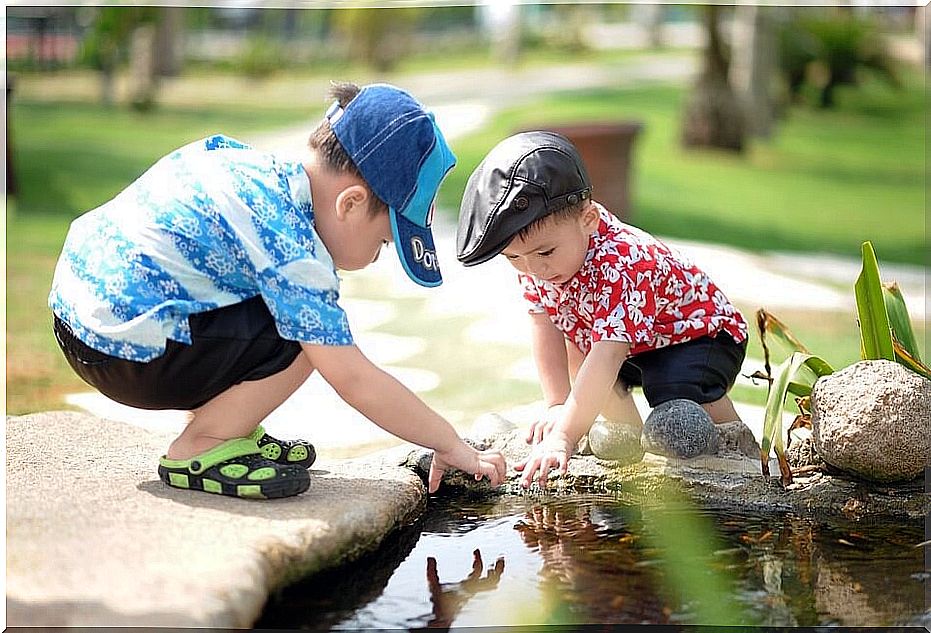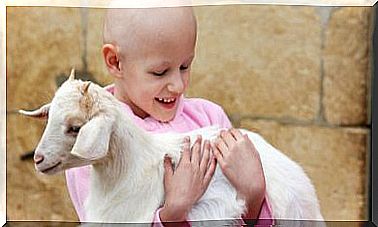Learning To Be Happy From Childhood

All human beings come into the world with a body that is loaded with genes that drive us to pursue what makes us happy. However, the family and social environment in which each child develops shapes this genetic baggage; That is why it is important that parents and caregivers contribute to fostering the joy and emotional health of the child.
Although we all come with genes to be happy, the quality of our relationships and our circumstances can strengthen that innate tendency to pursue what makes us happy – whatever it is, your concept of happiness – can modify that condition with which we come.
Ideally, all the children in the world learn to be happy; Well, as science has shown, we are not only born with the innate ability to be happy but we also learn to be happy.
And in this task of learning to be happy from childhood, the contribution of parents and caregivers is necessary, who help build the child’s self-esteem and can also promote and star in an environment full of joy, two of the main pillars necessary to build a healthy personality.
Living fully is essential to learn to be happy

Mom, Dad, and babysitters should do whatever they can to provide children with rewarding activities that foster pleasant moods. Happiness is lived more than learning it, according to experts, who explain to parents that children genuinely experience these types of feelings when the interactions they carry out are pleasant, safe and assertive.
Affective upbringing and proper education help children to achieve the long-awaited happiness. And in this, parents are also protagonists, since they are the ones who progressively promote their autonomy and, especially, self-confidence.
And the work of parents does not end there, because it is very important that children are encouraged to have empathetic and supportive behavior, which leads them to establish quality social relationships.
Likewise, psychiatrists who have studied how one can learn to be happy from childhood, also enlighten parents about criticism, they say that it should exist but from a constructive perspective. Comments must be positive, inviting a way out and accompaniment by the adult of reference.
Growing up in a positive environment nurtures for life

And although the fact that parents strive to give their children a happy childhood does not guarantee that they will maintain this state of satisfaction and well-being forever, being happy from childhood gives children a genuine and rich support that to face all the stages of your life.
The psychiatrist Rojas Marcos, author of books such as ” Our happiness “, ” The strength of Optimism ” or ” Self-esteem “, explains in an article that enjoying a happy childhood helps to maintain an optimistic and hopeful perspective during life.
All these factors, according to the expert, “strengthen our ability to adapt, our confidence and invigorate that natural mixture of resistance and flexibility that today we call resilience, and that helps us overcome adversity.”
Elements that ultimately contribute to them becoming men and women with a balanced personality, who have flexible characters, capable of adapting to the changes and challenges that living intensely implies. That is why it is so important that today’s parents strive to change the parenting paradigm.
In doing so, it is vital that they are not only guided by the voices of experts or third parties, because although it is important to nourish yourself with pedagogical tools, it is also very essential to give your own children a voice.
Throughout his life, take an interest in him, what he thinks about his family, about school life, about his rights and his hobbies; Help him build a healthy internal environment, a serene personality. Teach him to be aware of his actions; All this will help your child feel satisfied with his life, which is another of the fundamental pillars that all people need to learn to feel happy.









